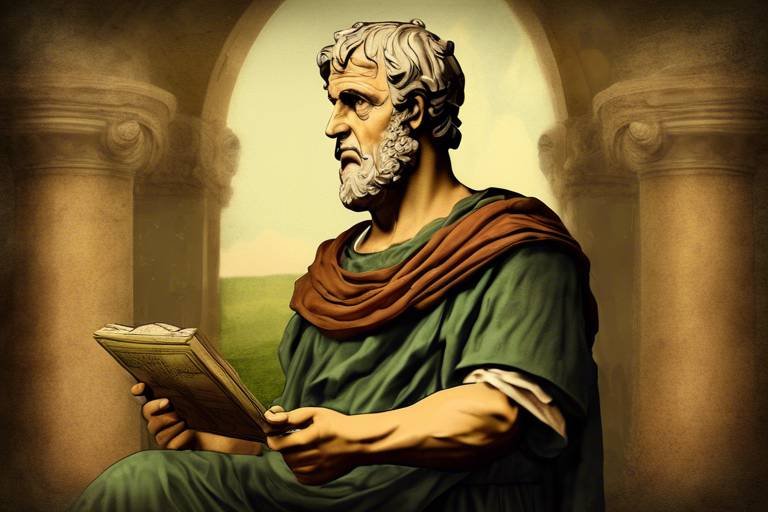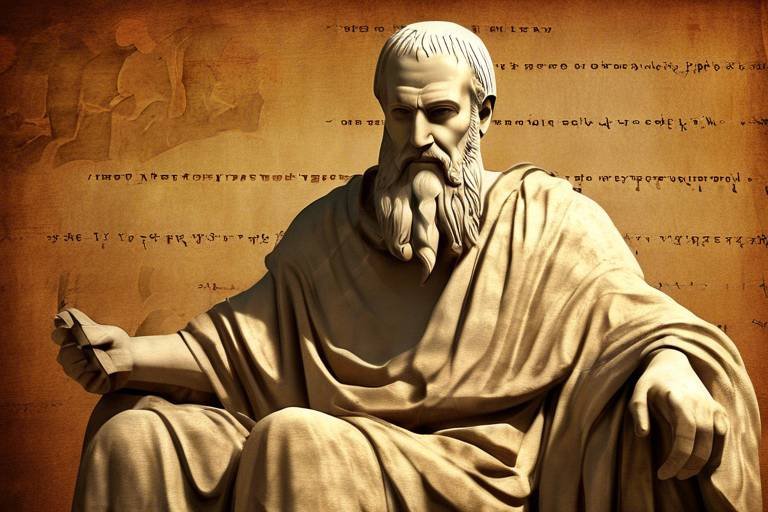Gauss: The Prince of Mathematicians
Carl Friedrich Gauss, often referred to as the Prince of Mathematicians, was a brilliant mind whose contributions revolutionized various branches of mathematics. Born in 1777 in Brunswick, Germany, Gauss displayed exceptional mathematical talent from a young age, paving the way for his remarkable career in the world of numbers and equations.
His early education was marked by self-discovery and independent learning, as he delved into advanced mathematical texts and made groundbreaking discoveries on his own. Gauss's insatiable curiosity and innate ability to grasp complex concepts set him apart from his peers and foreshadowed his future as a mathematical prodigy.
One of Gauss's most notable achievements lies in the realm of number theory, where he made significant breakthroughs that continue to influence mathematical research to this day. His work on modular arithmetic, the prime number theorem, and the constructibility of the heptadecagon showcased his unparalleled mathematical prowess and analytical skills.
Furthermore, Gauss's contributions to statistics, particularly his development of the Gaussian distribution, have had a profound impact on fields ranging from physics to social sciences. The normal distribution curve, also known as the bell curve, is a fundamental concept in statistical analysis and data interpretation, highlighting Gauss's enduring legacy in the field of statistics.
Aside from his mathematical endeavors, Gauss also made substantial contributions to geodesy and astronomy, where his innovative methods and calculations revolutionized the way we understand planetary motion and Earth's shape. His method of least squares for data analysis remains a cornerstone of modern statistical modeling and data interpretation.
Throughout his life, Gauss garnered numerous accolades and honors for his groundbreaking work, including membership in prestigious academies and recognition from fellow mathematicians and scientists. His legacy continues to inspire generations of mathematicians and serves as a testament to the enduring impact of his mathematical genius.
Despite his towering intellect and formidable reputation in the world of mathematics, Gauss was also known for his humility and kindness towards others. Anecdotes from his personal life offer glimpses of a man who, despite his extraordinary abilities, remained humble and approachable, endearing him to those around him.
From the Gauss-Bonnet theorem to the law of quadratic reciprocity, Gauss's mathematical formulas and theorems stand as testaments to his unparalleled intellect and analytical prowess. His contributions to complex analysis and number theory have left an indelible mark on the field of mathematics, solidifying his status as one of the greatest mathematicians in history.
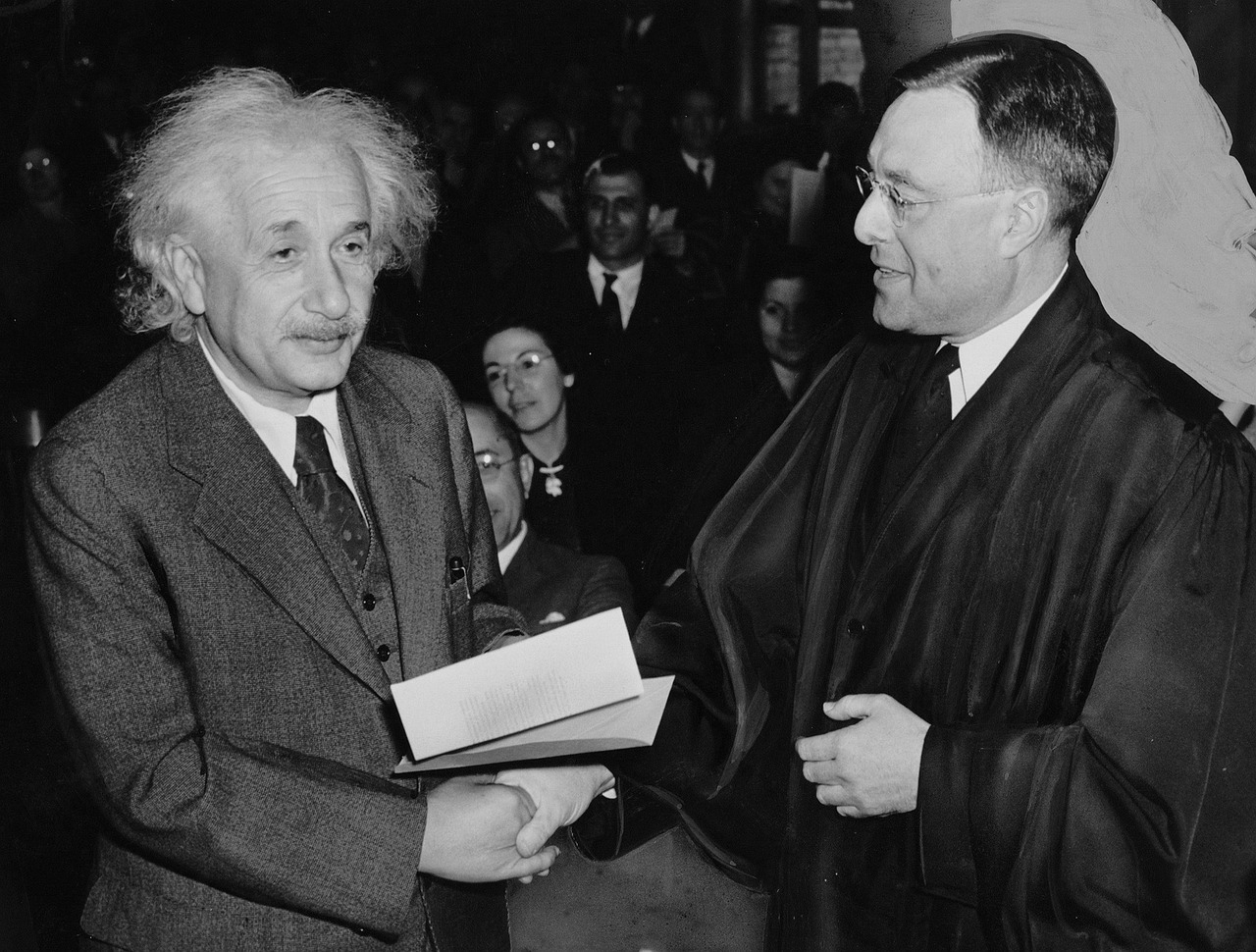
Early Life and Education
Carl Friedrich Gauss, often referred to as the "Prince of Mathematicians," was born on April 30, 1777, in Brunswick, a town in the Duchy of Brunswick-Wolfenbüttel, in the Holy Roman Empire. From a young age, Gauss displayed exceptional mathematical abilities, astounding his teachers and peers with his innate talent for numbers and calculations. Despite coming from a humble background, Gauss's early passion for mathematics set him on a path to greatness.
During his formative years, Gauss received his primary education at the local schools in Brunswick. It was here that his mathematical prowess first became apparent, as he quickly outstripped his classmates in solving complex arithmetic problems and demonstrating an intuitive understanding of mathematical concepts. Recognizing his extraordinary abilities, Gauss's teachers provided him with additional resources and support to nurture his talent.
At the age of 14, Gauss made a significant mathematical discovery that would foreshadow his future achievements. While tasked with summing the integers from 1 to 100 by his teacher, Gauss astounded everyone by realizing that the sum could be calculated by pairing the numbers at the beginning and end of the sequence (1+100, 2+99, 3+98, and so on), leading to a quick solution of 5050. This early display of mathematical insight marked the beginning of Gauss's exceptional career in mathematics.
Following his impressive demonstration of mathematical ability, Gauss continued his education at the Collegium Carolinum, a local school in Brunswick, where he further honed his skills in mathematics and physics. Despite facing personal challenges and setbacks, including the early death of his father, Gauss persevered in his studies and dedicated himself to mastering the intricacies of mathematical theory.
After completing his secondary education, Gauss went on to study at the University of Göttingen, where he delved deeper into advanced mathematical topics under the guidance of esteemed mathematicians and scholars. It was during his time at the university that Gauss began to make significant contributions to the field of mathematics, laying the groundwork for his future groundbreaking discoveries and innovations.
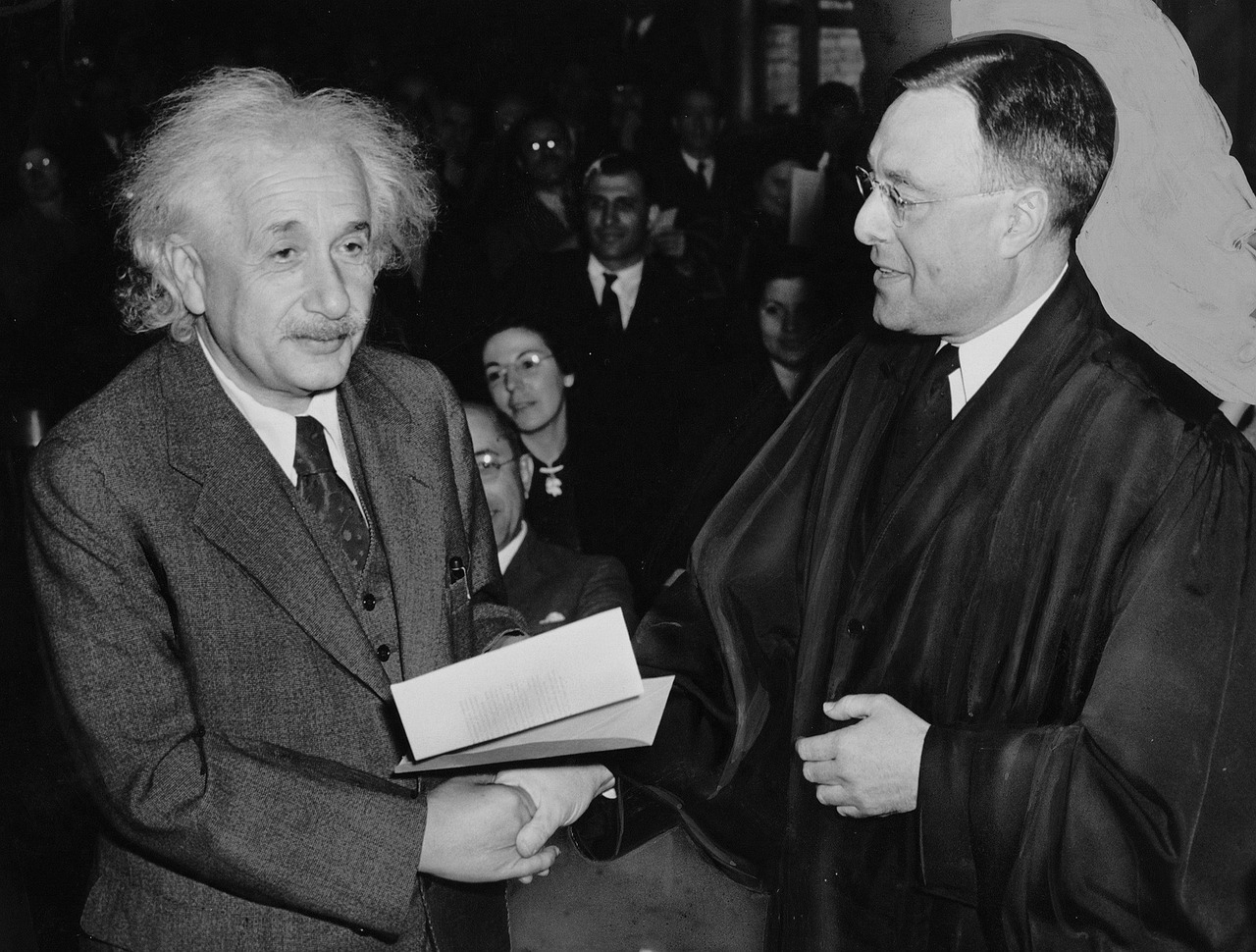
Number Theory Innovations
Carl Friedrich Gauss, often referred to as the "Prince of Mathematicians," made remarkable contributions to the field of number theory that revolutionized mathematical thinking. One of Gauss's most significant innovations was his work on modular arithmetic, where he introduced the concept of congruence and laid the foundation for modern algebraic structures. Through his exploration of prime numbers, Gauss formulated the prime number theorem, providing insights into the distribution of prime numbers and their density among integers.
Moreover, Gauss's discovery of the constructibility of the heptadecagon showcased his profound understanding of geometry and trigonometry, demonstrating his ability to solve long-standing mathematical problems with elegance and precision. His investigations into quadratic forms and continued fractions further solidified his reputation as a pioneering figure in number theory, inspiring future generations of mathematicians to delve deeper into the intricate world of mathematical patterns and relationships.
By unraveling the mysteries of numbers and their properties, Gauss not only enriched the field of mathematics but also paved the way for advancements in cryptography, coding theory, and computer science. His insights into the fundamental nature of numbers continue to influence diverse areas of research, highlighting the enduring relevance of his number theory innovations in the modern mathematical landscape.

Gaussian Distribution
Gaussian Distribution, also known as the normal distribution, stands as one of Carl Friedrich Gauss's most significant contributions to the field of statistics. This bell-shaped curve is a fundamental concept in probability theory and statistics, widely used in various scientific disciplines for modeling real-world phenomena. The Gaussian distribution is characterized by its symmetrical shape, with the mean, median, and mode all being equal, creating a perfect balance in the distribution of data.
One of the key features of the Gaussian distribution is the empirical rule, also known as the 68-95-99.7 rule, which states that approximately 68% of the data falls within one standard deviation of the mean, 95% within two standard deviations, and 99.7% within three standard deviations. This rule highlights the predictability and consistency of data distribution under the Gaussian model, making it a powerful tool for statistical analysis and inference.
Moreover, the Gaussian distribution plays a crucial role in hypothesis testing, as it allows researchers to make inferences about population parameters based on sample data. By utilizing properties of the normal distribution, statisticians can calculate probabilities, confidence intervals, and conduct hypothesis tests with a high degree of accuracy and reliability.
Furthermore, the central limit theorem, another fundamental concept in statistics, states that the distribution of sample means approaches a normal distribution as the sample size increases, regardless of the shape of the population distribution. This theorem underscores the ubiquity and importance of the Gaussian distribution in statistical analysis, providing a robust framework for understanding and interpreting data.
In practical terms, the Gaussian distribution serves as a powerful tool for modeling various phenomena in the natural and social sciences, ranging from the heights of individuals in a population to the measurement errors in scientific experiments. Its versatility and applicability make it indispensable for researchers and analysts seeking to understand the underlying patterns and trends in data, enabling them to make informed decisions and predictions based on statistical principles.

Geodesy and Astronomy
Gauss's contributions to geodesy and astronomy were as significant as his work in pure mathematics. In the field of geodesy, Gauss developed the method of least squares, a statistical technique used for data analysis and estimation. This method revolutionized the way geodetic measurements were processed, allowing for more accurate and reliable results in surveying and map-making.
Furthermore, Gauss made remarkable contributions to astronomy, particularly in the study of planetary orbits. His work on celestial mechanics and gravitational theory laid the groundwork for future advancements in the field. Gauss's calculations and theories helped astronomers better understand the movements of celestial bodies and predict astronomical events with greater precision.
One of Gauss's most notable astronomical achievements was his calculation of the orbit of the asteroid Ceres. Using only a few observations of the asteroid's position, Gauss was able to accurately determine its orbit, a feat that earned him widespread recognition in the scientific community.
Moreover, Gauss's interest in astronomy extended to his involvement in the triangulation of the Kingdom of Hanover, where he applied his mathematical expertise to the accurate measurement of the Earth's surface. This project not only contributed to the field of geodesy but also provided valuable data for future astronomical observations and calculations.

Legacy and Influence
Carl Friedrich Gauss, often referred to as the "Prince of Mathematicians," left an indelible mark on the world of mathematics that continues to influence generations of mathematicians to this day. His groundbreaking work in various fields of mathematics has solidified his legacy as one of the greatest mathematicians in history.
One of Gauss's most significant contributions is his work in number theory, where he revolutionized the field with his discoveries in modular arithmetic and the prime number theorem. These contributions laid the foundation for future advancements in the understanding of numbers and their properties.
Furthermore, Gauss's development of the Gaussian distribution, also known as the normal distribution, has had a profound impact on statistics and various scientific disciplines. This distribution, with its characteristic bell curve, is widely used in data analysis, probability theory, and the natural sciences.
Aside from his mathematical achievements, Gauss's influence extends to geodesy and astronomy, where his method of least squares for data analysis revolutionized the field. His work on planetary orbits and gravitational theory contributed significantly to our understanding of the universe.
The legacy of Gauss transcends his mathematical prowess, as he continues to inspire mathematicians and scientists worldwide. His emphasis on rigorous proof and elegant solutions serves as a model for aspiring mathematicians, emphasizing the importance of precision and creativity in problem-solving.
Moreover, Gauss's impact on modern mathematics is undeniable, with many of his theorems and formulas still being studied and applied in various mathematical disciplines. His work continues to shape the way mathematicians approach complex problems and seek elegant solutions.

Personal Life and Anecdotes
Carl Friedrich Gauss, often portrayed as a solitary and intense figure immersed in the world of numbers, had a personal life that offered glimpses into his humanity beyond his mathematical brilliance. Despite his reputation for being reserved, Gauss formed meaningful relationships with his peers and mentors. One notable anecdote recounts Gauss's remarkable ability to calculate the sum of the first 100 natural numbers within seconds during his childhood, showcasing his innate mathematical talent from a young age.
Furthermore, Gauss's personal life revealed a compassionate side, as he often provided financial support to struggling colleagues and their families. His generosity extended beyond the realm of mathematics, demonstrating his empathy and kindness towards others. Despite his intellectual prowess, Gauss remained humble and approachable, earning the respect and admiration of those around him.
Another intriguing aspect of Gauss's personal life was his love for music, particularly his skill in playing the harpsichord. Music served as a creative outlet for Gauss, offering a respite from the complexities of numbers and equations. This passion for music highlighted the multifaceted nature of Gauss's personality, showcasing a harmonious blend of logic and creativity.
In addition to his scholarly pursuits, Gauss enjoyed spending time in nature, finding solace in the tranquility of the outdoors. His contemplative walks in the countryside provided moments of reflection and inspiration, fueling his intellectual pursuits. Gauss's deep connection to nature underscored his appreciation for the beauty and order inherent in the natural world, influencing his mathematical insights and theories.
Despite his profound impact on the field of mathematics, Gauss valued simplicity and elegance in both his work and personal life. His pursuit of perfection and precision extended beyond mathematical theorems to encompass his interactions with others and his approach to everyday challenges. Gauss's personal life and anecdotes offer a rich tapestry of experiences that illuminate the man behind the mathematical genius, revealing a complex and multifaceted individual whose legacy transcends numbers and equations.

Awards and Recognition
Carl Friedrich Gauss, often referred to as the "Prince of Mathematicians," was a prodigious talent whose groundbreaking work in various fields of mathematics earned him widespread acclaim and recognition. His exceptional contributions have left an indelible mark on the world of mathematics, solidifying his legacy as one of the most influential figures in the history of the discipline.
Throughout his illustrious career, Gauss received numerous accolades and honors that underscored his exceptional mathematical prowess and intellectual achievements. His remarkable accomplishments did not go unnoticed, with prestigious academies and institutions bestowing upon him a myriad of awards in recognition of his extraordinary contributions to the field of mathematics.
Among the many honors Gauss received during his lifetime was his membership in esteemed academic societies, such as the Royal Society in London and the Prussian Academy of Sciences in Berlin. These affiliations not only reflected Gauss's standing as a preeminent mathematician but also provided him with a platform to further advance the frontiers of mathematical knowledge.
Furthermore, Gauss's groundbreaking work in areas such as number theory, algebra, and statistics garnered him widespread acclaim and admiration from his peers and contemporaries. His profound insights and innovative approaches to mathematical problems set him apart as a visionary thinker whose impact reverberated throughout the mathematical community.
Despite his immense contributions to the field of mathematics, Gauss remained humble and dedicated to the pursuit of knowledge throughout his life. His insatiable curiosity and relentless quest for excellence served as an inspiration to generations of mathematicians who followed in his footsteps, perpetuating his enduring influence on the discipline.
In conclusion, Carl Friedrich Gauss's remarkable achievements and lasting legacy continue to inspire mathematicians and scholars around the world. His unparalleled intellect, innovative spirit, and unwavering dedication to the pursuit of mathematical truth have firmly established him as a towering figure in the annals of mathematical history.
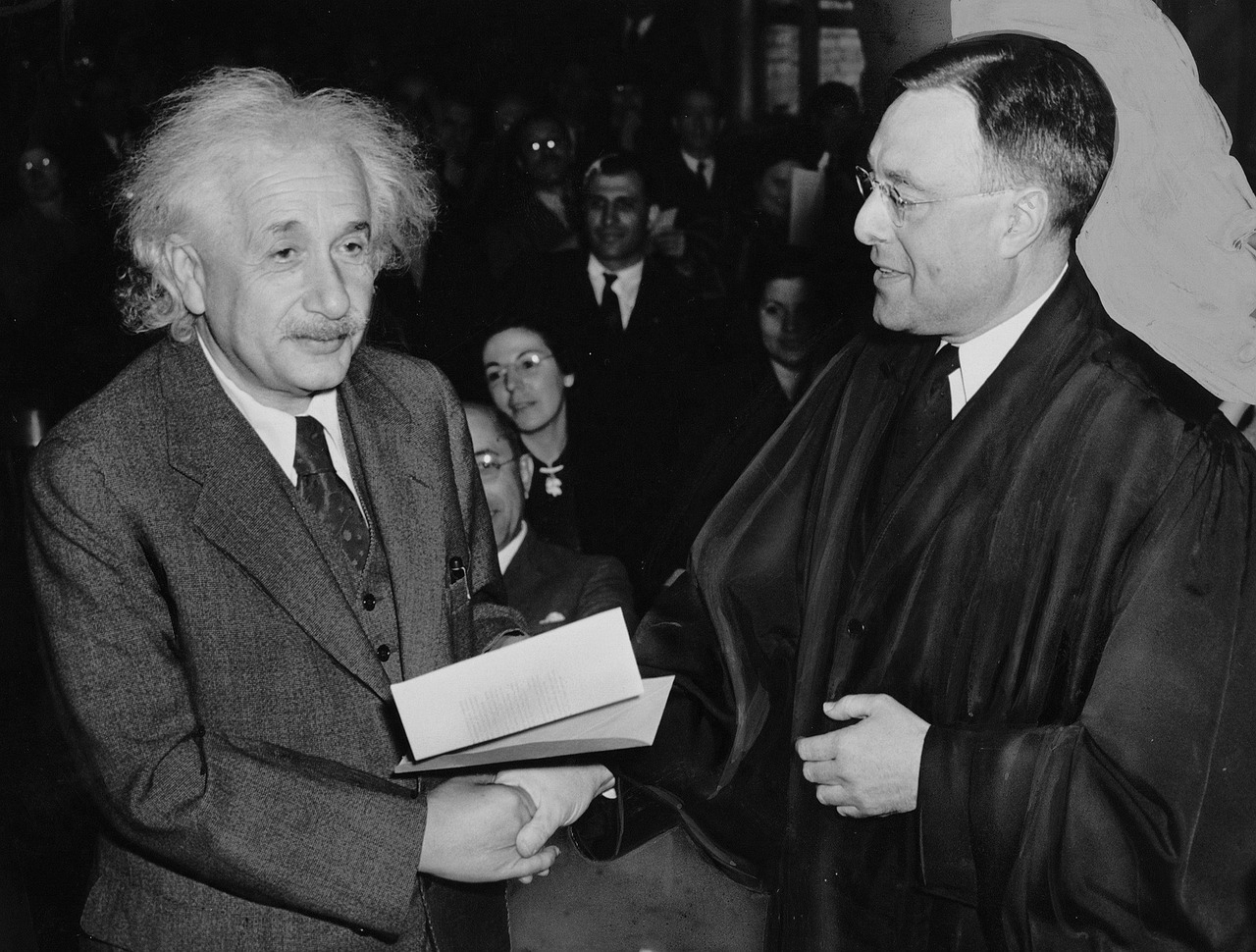
Mathematical Formulas and Theorems
Carl Friedrich Gauss, often referred to as the "Prince of Mathematicians," left an indelible mark on the world of mathematics with his groundbreaking formulas and theorems. One of his most renowned contributions is the Gauss-Bonnet theorem, which establishes a fundamental relationship between the curvature of a surface and its topology. This theorem has wide-ranging applications in differential geometry and mathematical physics, providing insights into the intrinsic geometry of surfaces.
In the realm of number theory, Gauss's law of quadratic reciprocity stands as a testament to his mathematical prowess. This theorem, which explores the properties of quadratic residues and non-residues modulo a prime number, has implications in cryptography, coding theory, and algebraic number theory. Gauss's elegant proof of this law solidified his reputation as a master of number theory.
Furthermore, Gauss's contributions to complex analysis are exemplified by his work on the fundamental theorem of algebra. This theorem states that every non-constant polynomial has at least one root in the complex plane, a result that revolutionized the understanding of polynomial equations. Gauss's insights into the behavior of complex functions paved the way for the development of modern analysis and its applications in various scientific disciplines.
Another notable theorem associated with Gauss is the arithmetic-geometric mean, a method for computing the mean of two numbers that converge to the same value. This theorem has applications in calculus, number theory, and algorithms, demonstrating Gauss's ability to unify disparate mathematical concepts into elegant and powerful results.
In summary, Gauss's mathematical formulas and theorems continue to inspire and challenge mathematicians to this day. His innovative approach to problem-solving, coupled with his profound insights into various branches of mathematics, cements his legacy as one of the greatest mathematicians in history.
Frequently Asked Questions
- 1. What were some of Carl Friedrich Gauss's early mathematical achievements?
Carl Friedrich Gauss demonstrated exceptional mathematical talent from a young age. Some of his early achievements include discovering the constructibility of the heptadecagon, developing modular arithmetic, and proving the fundamental theorem of algebra.
- 2. What is the significance of Gauss's work on the Gaussian distribution?
Gauss's development of the Gaussian distribution, also known as the normal distribution, revolutionized the field of statistics. This distribution is fundamental in various scientific disciplines for describing the distribution of data and has widespread applications in fields such as physics, social sciences, and finance.
- 3. How did Gauss contribute to geodesy and astronomy?
Gauss made significant contributions to geodesy by developing the method of least squares for data analysis, which is widely used in various scientific fields. In astronomy, he provided valuable insights into planetary orbits and made advancements in celestial mechanics.
- 4. What is the Gauss-Bonnet theorem, and why is it important?
The Gauss-Bonnet theorem is a fundamental result in differential geometry that relates the curvature of a surface to its topological properties. It has profound implications in fields such as physics and mathematics, providing a deep connection between geometry and topology.
- 5. How did Gauss's work influence future generations of mathematicians?
Gauss's groundbreaking contributions to various branches of mathematics, along with his innovative methods and theorems, served as a source of inspiration for generations of mathematicians. His legacy continues to shape the development of mathematics to this day.







